Restful slumber – Latest in sleep research (01/2016)
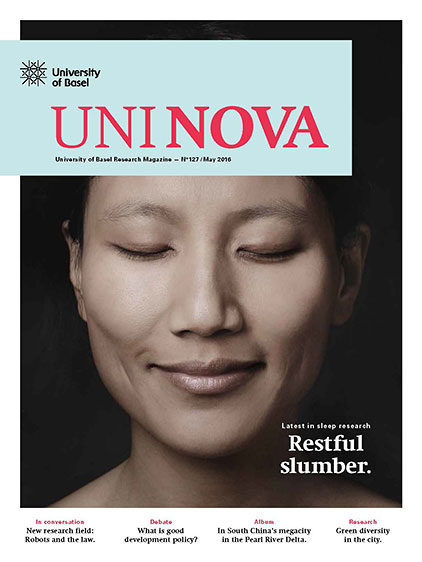 Download (PDF, 5 MB)
Download (PDF, 5 MB)
Good evening, good night: Our eyes gently close, our breathing grows steady, our muscles relax, and we gradually lose awareness of our surroundings. When we are asleep, our body is in a state of rest. The precise function of sleep has not yet been definitely explained by researchers. What is clear, however, is that getting enough quality sleep is essential for our health. Various types of disruption can spoil the peace of the night.
Subscribe to UNI NOVA-
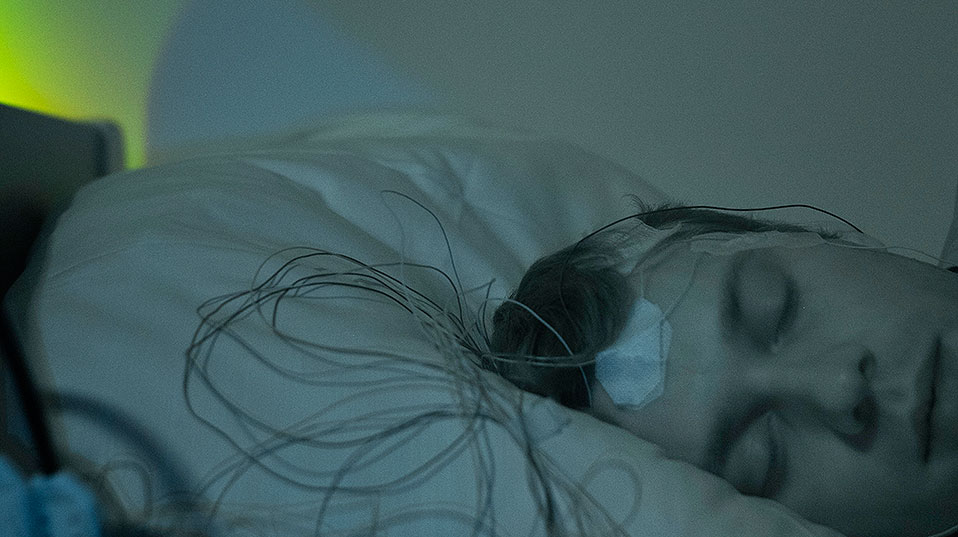 Dossier
DossierEach person is their own clock
Text: Oliver Klaffke / Human beings have their own sleep-wake cycles, and these rhythms can be disturbed by light emitted from smartphones and tablets. At the Psychiatric Hospital of the University of Basel (UPK), Christian Cajochen’s team is examining these rhythms in human beings.
-
Dossier
Sleepless in the sleep laboratory
Text: Yannik Sprecher / My night was not as unpleasant as I had anticipated – wearing electrodes on my head was certainly unusual, but less awkward than expected. Also, my bed was comfortable and the carers were kind. Still, I would not want to spend my nights in the sleep lab for weeks on end. A first-hand account.
-
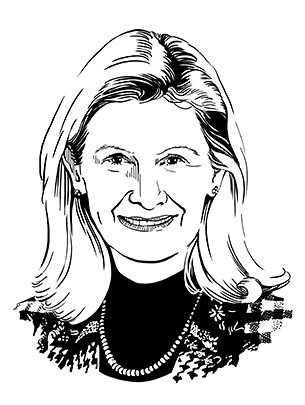 Dossier
DossierExercise and being in love promote a good night’s sleep
Text: Martin Hicklin / What can be done when sleep is badly disturbed, and what promotes good sleep? Research groups at the Psychiatric Clinics of the University of Basel (UPK) have been addressing such questions for some time now. Exercise is good – but so is being in love.
-
Dossier
Dealing with stress
Text: Martin Hicklin / Depression, stress, and burnout are often accompanied by poor sleep. Analysis of brain patterns and hormonal tests offer a path to improved treatments.
-
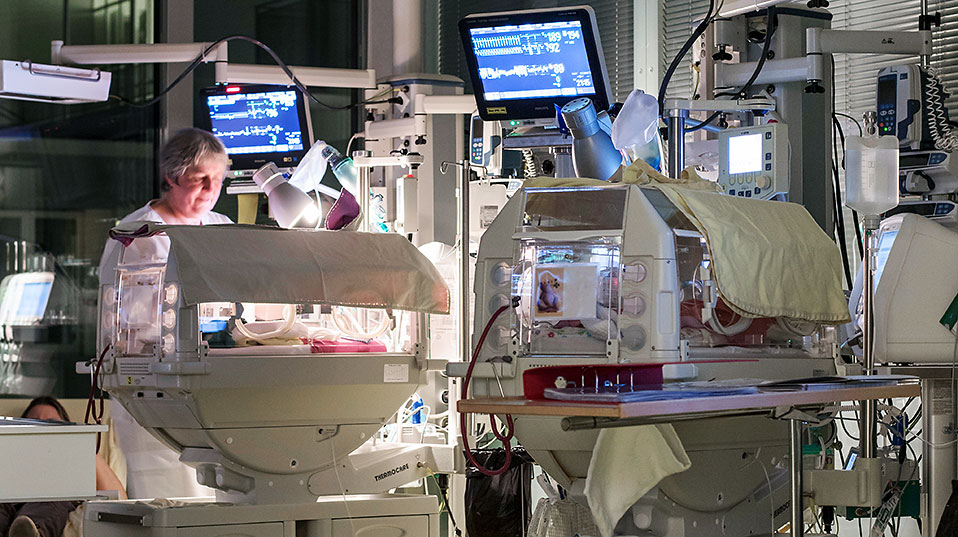 Dossier
DossierPremature babies have trouble sleeping – a problem that can continue later in life
Text: Christoph Dieffenbacher / Psychologists at the University of Basel are currently conducting a longitudinal study to investigate whether the sleep of people born prematurely differs in later life from that of their peers.
-
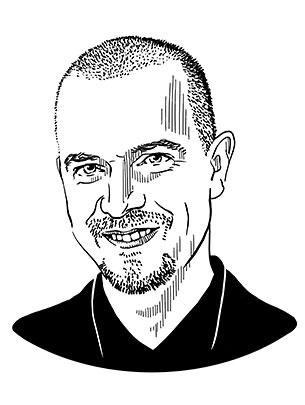 Dossier
DossierLater start to the school day, more alert children
Text: Christoph Dieffenbacher / Children and adolescents have long known it: If school starts later in the morning, they feel more rested and fitter. Even a small shift in school hours makes a difference, as psychologists at the University of Basel have discovered. Their findings have had consequences.
-
Dossier
Self-confident adolescents sleep better
Text: Christoph Dieffenbacher / About one-fifth of adolescents say that they sleep badly. A psychologist from the University of Basel has been investigating the reasons for this for some years and is looking for solutions. He also has a few tips for parents.
-
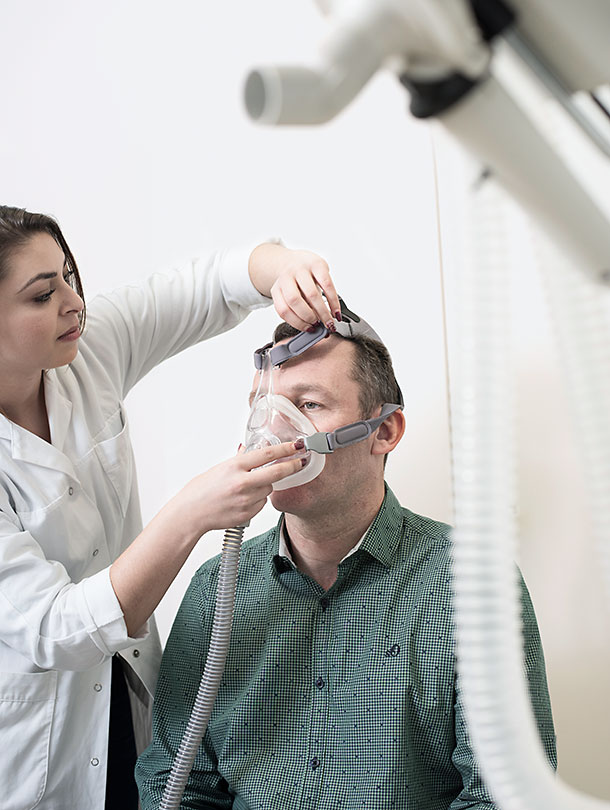 Dossier
DossierNightly respiratory arrest
Text: Christoph Dieffenbacher / Heavy snoring accompanied by interruptions in breathing can lead to serious health problems. In Basel, pulmonologists are investigating the mechanisms that put constant stress on snorers suffering from sleep apnea. Possible therapeutic approaches are also being identified.
-
Dossier
The 25-hour man
Text: Oliver Klaffke / Each person’s wake-sleep rhythm is calibrated at 24 hours. In Basel, scientists are studying a man for whom the mechanism does not work. This is providing them with new insights into human chronobiology.
-
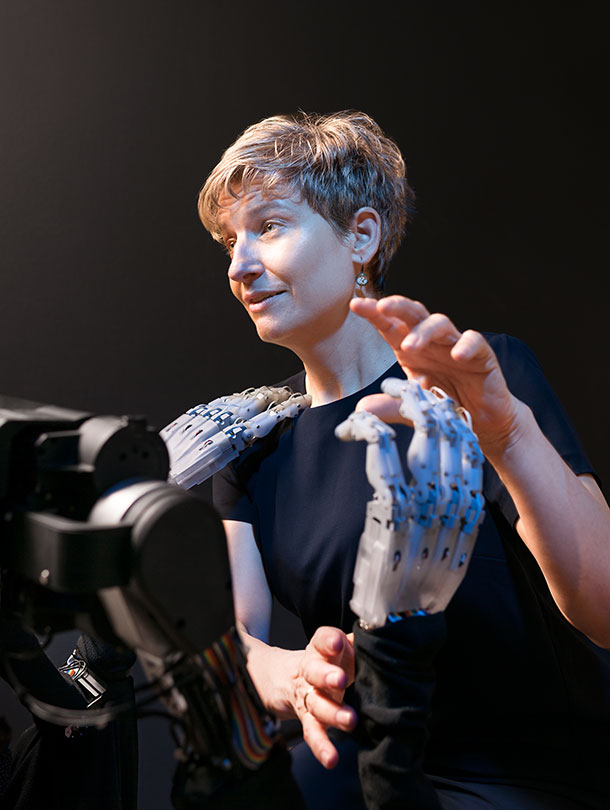 In conversation
In conversation“Who should be punished if a child is run over by a robotic car?”
Interview: Urs Hafner / Legal academic Sabine Gless has touched a raw nerve. She argues that the law is not geared up to deal with robots that make decisions themselves – and may put people’s lives in danger.
-
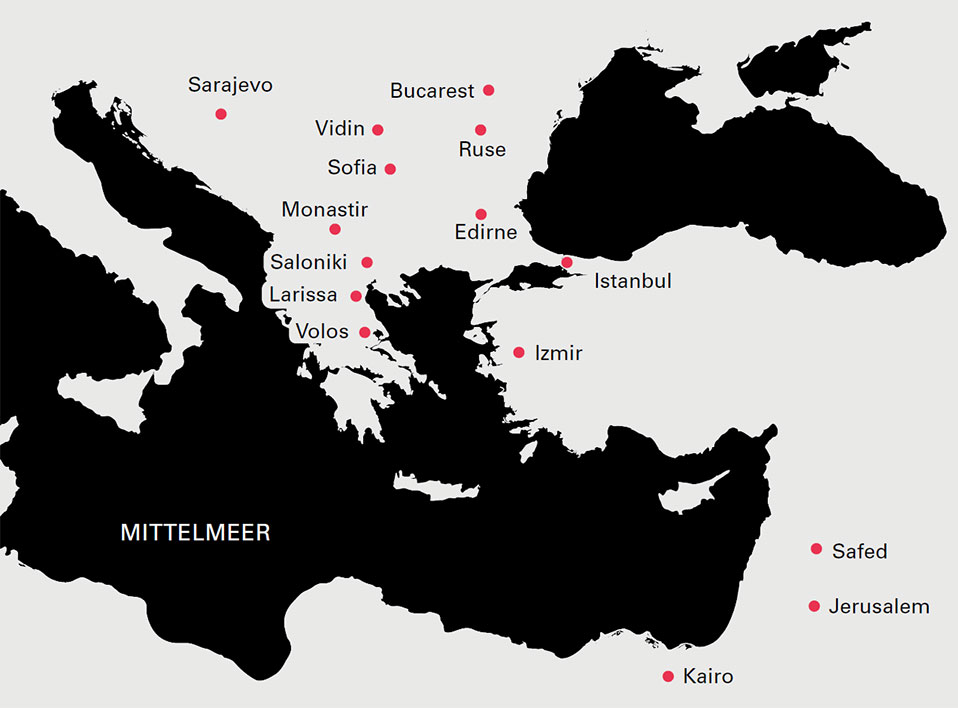 Research
ResearchJudeo-Spanish: An almost forgotten language
Text: Olivia Poisson / In the late Middle Ages, many Jews who had been exiled from Spain or Portugal migrated to the Ottoman Empire. Their language, Judeo- Spanish, survives in a few pockets. Research on it is shedding a light on how languages in general develop.
-
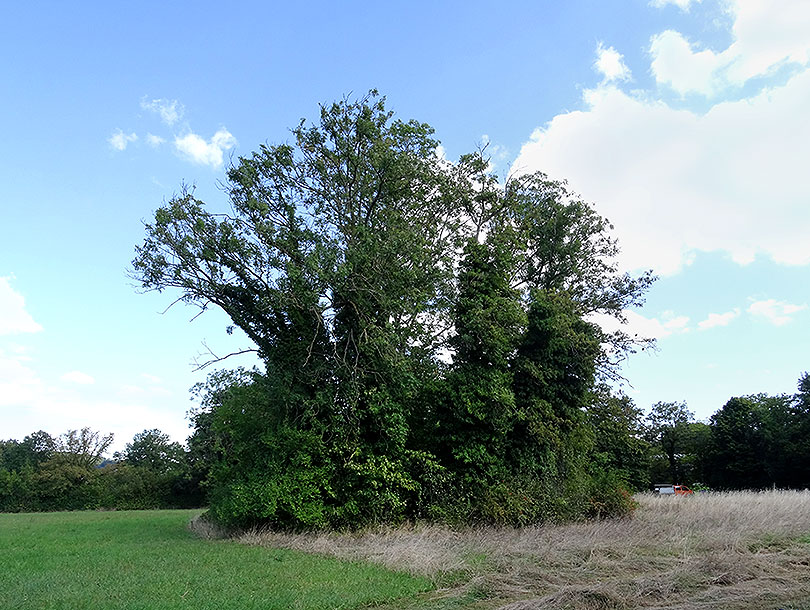 Research
ResearchNatural diversity between asphalt and concrete
Text: Yvonne Vahlensieck / The Canton of Basel-Stadt contains numerous woodlets, many of them in the city. Now, for the first time, a conservation biologist at the University of Basel is studying the ecosystem functions of these green islands in urban space.
-
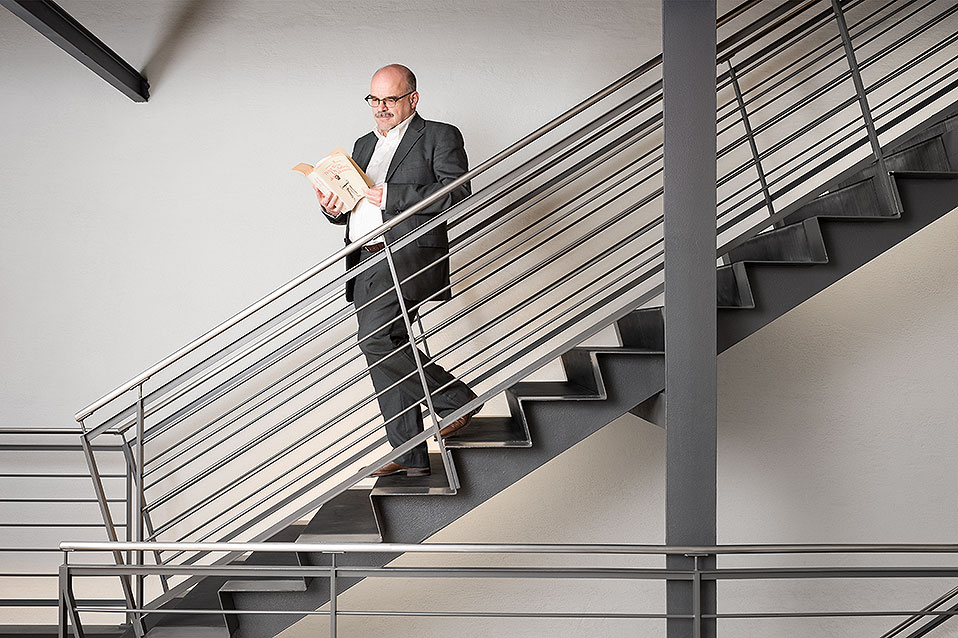 Column
ColumnThe Aesthetics of Resistance
Text: Prof. Alexander Honold / My book: Literary scholar Alexander Honold recommends Peter Weiss’s epic of resistance, flight, and bearing witness
-
Research
White specks on the map of life
Text: Katrin Bühler / How are signals processed and building blocks produced inside cells? How do diseases develop? Resolving structures of complex proteins enabled researchers at the Biozentrum to answer such questions.
-
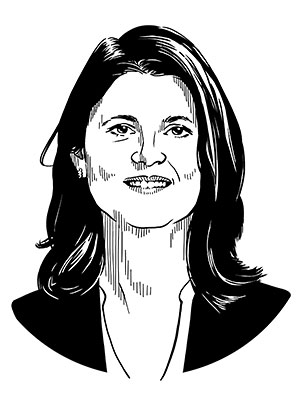 Opinion
OpinionWhat is good development policy, Andrea Franc?
Text: Andrea Franc / Would gaining free access to northern markets help the South economically? And how can developing countries secure functioning institutions? Two contributors discuss how the effectiveness of development aid could be improved.
-
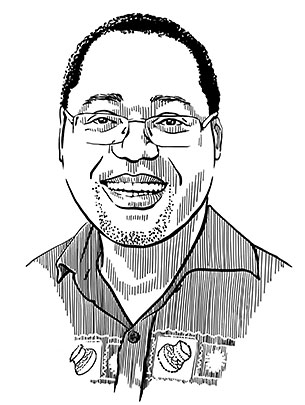 Opinion
OpinionWhat is good development policy, Elísio Macamo?
Text: Elísio Macamo / Would gaining free access to northern markets help the South economically? And how can developing countries secure functioning institutions? Two contributors discuss how the effectiveness of development aid could be improved.
-
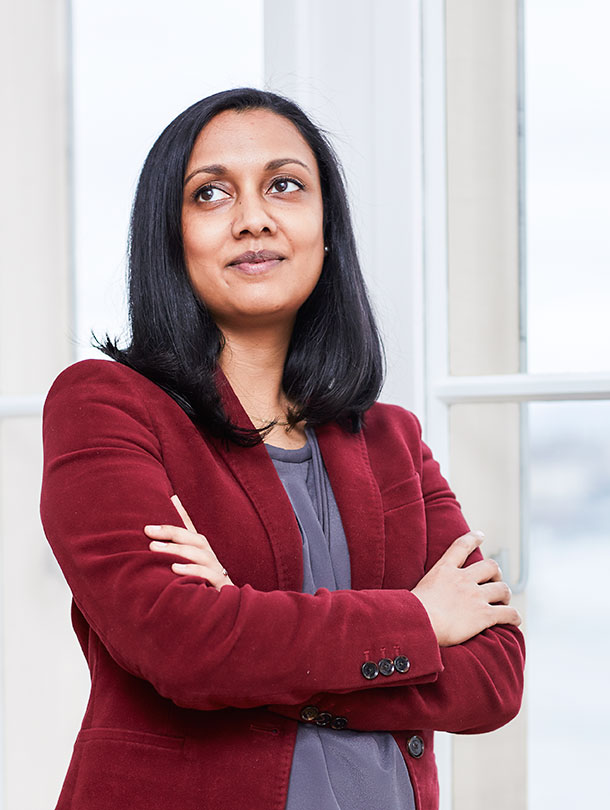 Portrait
PortraitThe art of ethnography
Text: Samuel Schlaefli / Silvy Chakkalakal is studying the photographs and films of the American ethnologist Margaret Mead. Mead’s fieldwork in Samoa and Bali was not simply academic research, but artistic practice.
-
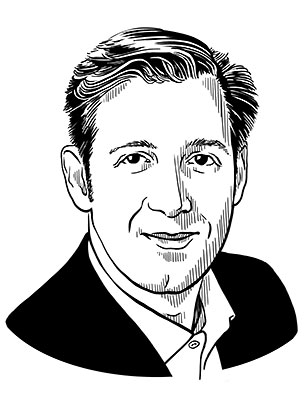 Opinion
OpinionWhat is life sciences law?
Text: Herbert Zech / Different areas of law work together in the field of life sciences to provide a framework that promotes the development and spread of new technologies, minimizes the risks associated with their use, and sets boundaries where necessary.
